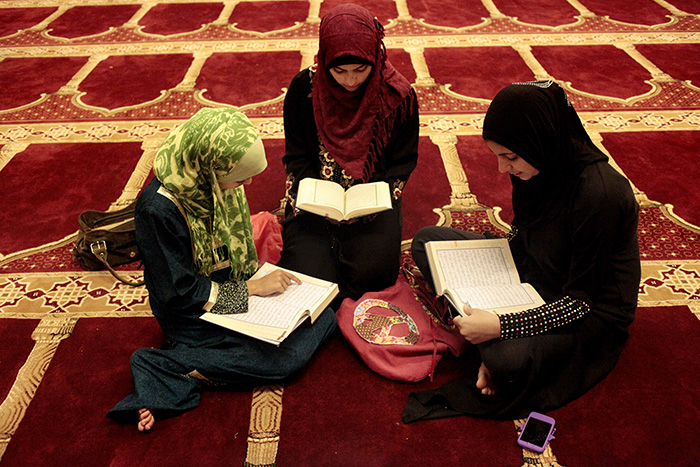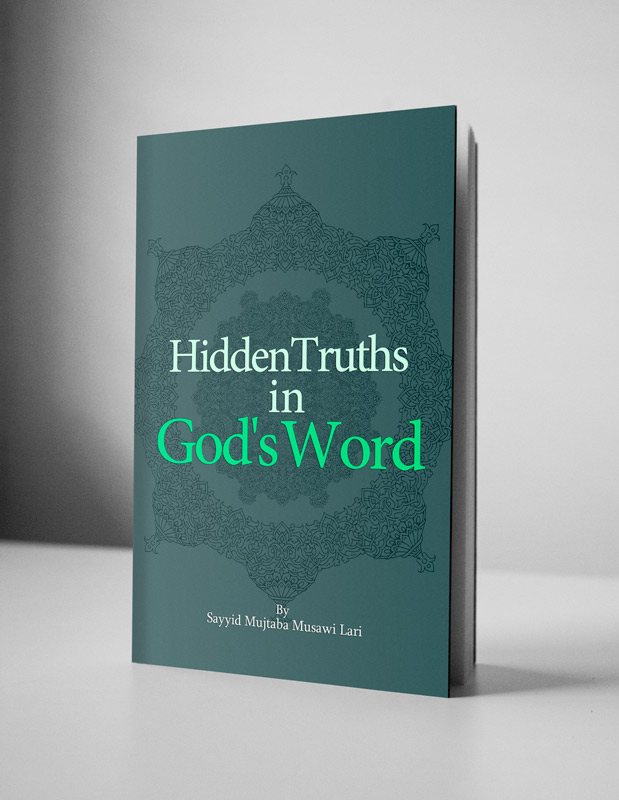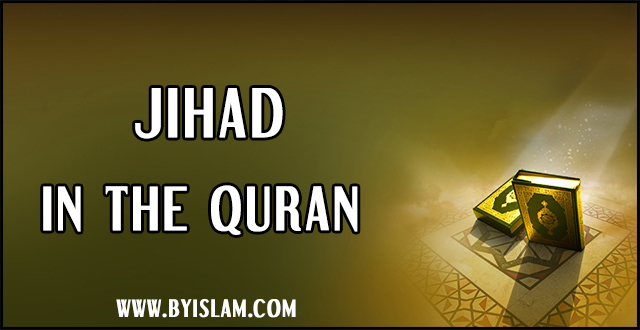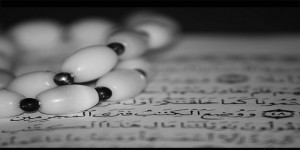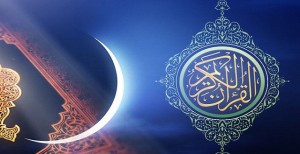How to Perform Ablution Based on Qur’an & Sunnah ?
 As mentioned earlier, wudu is an act consisting of two stages (i) washing the face and hands; and (ii) wiping a part of the head and feet. This is clearly evident from the verse No. 6 of the suratu ‘1-Ma’idah:
As mentioned earlier, wudu is an act consisting of two stages (i) washing the face and hands; and (ii) wiping a part of the head and feet. This is clearly evident from the verse No. 6 of the suratu ‘1-Ma’idah:
“O you who believe! When you stand up for prayer, (i) wash your face and hands up to the elbows, (ii) and wipe a part of your head and your feet up to the ankles.” (5:6)
In this verse, two imperative forms have been used: (i) `faghsilu” which means “wash!”; and (ii)”wamsuhu”which means “wipe!”. It is obvious that the first imperative form (“wash!”) refers to the two objects which are “your face” (wujuhukum) and “your hands” (aydiyakum); while the second imperative form refers to a two objects which are “a part of your head” (by’ ru’usikum) and “your feet” (arjulakum).
The word “face” means the front portion of the head, comprising in man the surface between top of the forehead and the bottom of the chin, and extending from ear to ear. In its legal definition, as explained in theahadith of the Imams of Ahlu’1-bayt, it covers the surface of the face vertically from the hair-line to the bottom of the chin, and horizontally the parts which come within the reach of the span of the hand from the middle-finger to the thumb. (1)
The word “hand” means the organ especially adapted for grasping, and comprising the upper limb between the shoulder and the finger-tips. So we see that from the linguistic point of view, the word “yad“ is common between arm, fore-arm and hands.
When a word is commonly used in more than one meaning, it becomes necessary for the speaker to provide an associate (or a context) to specify the meaning. And thus we see the words “ila ‘1-marafiq up to the elbow” in the verse; these words were necessary to specify the part of the “hands“ which is to be included in wudu‘.
Now we come to one of the main differences among the Shi`ahs and the Sunnis in the manner of performingwudu‘. The Sunnis wash their fore-arm from the fingertips up to the elbows, and the Shi`ahs wash their fore-arm from the elbows to the finger-tips. As mentioned above the words “up to the elbows“ do not tell us to wash from the finger-tips to the elbow or vice verse; these words are there just to specify the part of the “hands” which is to be included in wudu‘.
Then how should we wash our fore-arm-from the elbow or from the finger-tips? The answer of this problem is provided by the sunnah. One of the responsibilities of the Prophet was to explain the details of, and practically demonstrate how to follow, the laws explained in the Qur’an. And, indeed, the most authentic way of learning the Prophet’s method of performing wudu‘ is through the ahadith of the Imams of Ahlu ‘l-bayt (the family of the Prophet). Zurarah bin A’yun narrates the following hadith:
“Imam Muhammad al-Baqir (a.s.) said, `Shouldn’t I describe to you the wudu‘ of the Messenger of Allah?’ We said, `Yes.’ When the water was brought, the Imam washed his hands, then he uncovered his fore-arms. He dipped his right hand in the vessel ….then scooped it full with water and poured it on his fore-head …. He let the water drop on to the end of his beard and then he passed his hand on his face and fore-head once.
“Then he dipped his left hand (in the vessel), filled it up (with water), poured it on his right elbow and then passed his palm on the fore-arm until the water dripped to the finger-tips. Then he fully scooped (the water) with his right hand, pour it on his left elbow and then passed his palm on the fore-arm until the water dripped to the finger-tips.
“Then he wiped the front part of his head and the apparent side of his feet by the wetness of his left and right hands.” (2)
In another hadith Imam Muhammad al-Baqir (a.s.) narrates the same manner of performing wudu‘ which Arnim l-minin ‘Ali had demonstrated when a person inquired about the Prophet’s manner of performing wudu‘.(3)
The imperative “wamsahu = wipe” means to directly wipe the hands, etc, on something. When a word like “wamsahu“ is used alone in a transitive form it denotes comprehensiveness and totality of the act; e.g.““ “would mean “wipe all of your head.” But whenever this verb is followed by the letter “ba” it denotes partiality e.g ““ would mean “wipe a part of your head.” In the verse mentioned above ““ has been used with the letter “ba” and thus the correct translation would be “wipe a part of your head”.
Here again we come across another difference between the Shi’ahs and the Sunnis. The Sunnis wipe all of their head whereas the Shi’ahs wipe only a part of their heads.
Which part of the head is to be wiped in wudu? The Qur’an is silent on this; the sunnah has explained it. Manyahadith from the Imams of Ahlu ‘l-bayt have explained that “a part of the head” is “the front part”.
(4)
The word “arjulakum“ means “feet, leg”. To specify its meaning, it was necessary to add the words “ila ‘ 1-ka `bayn up to the ankles”. The word “ar-julakum” is connected to “bi ru’usikum a part of your heads” by the coordinate conjunction “wa = and”. And thus the sentence would mean “wipe a part of your feet.”
Here again we come to two more differences among the Sunnis and the Shi`ahs. The Sunnis wash their wholefeet in wudu whereas the Shi`ahs wipe only the apparent side of their feet up to the ankles. As far as the Qur’an and the ahadith of the Ahlu ‘l-bayt are concerned, “wiping a part of your feet” is the only correct interpretation of the verse of wudu. And this interpretation has also been accepted by the famous Sunni scholar Imam Fakhru’d Din ar-Razi in his Tafsir al-Kabir. (5)
The only basis for the Sunnis’ point of view about “washing the feet” are some `ahadith‘ recorded in their books of tradition. These adadith cannot be accepted because:
Firstly, they are contrary to the injunction of the Qur’an. And the Prophet has said, “If a hadith is narrated to you from me, then put it before the Book of Allah. If it is according to the Book of Allah, then accept it; otherwise reject it.” (6)
Secondly, they are against the sunnah of the Prophet as explained by the Imam of the Ahlu ‘l-bayt who have been accepted as reliable by all the Muslims. Even some companions of the Prophet have clearly stated that it is wrong to ascribe the “washing of the feet” to the Prophet. For example, the famous companion Abdullah ibn `Abbas said, “Allah has enjoined two washings and two wipings (in wudu). Don’t you see that when Allah mentions the tayammum, He places two wipings in place of two washings (of face and hands) and leaves out the wipings (of head and feet).” (7)
Thirdly, the ahadith of the Sunnis in this matter are contradictory. Some ahadith mention “the washing of the feet” like those of Humran quoted by Imam al-Bukhari (8) and of Ibn `Asim quoted by Imam Muslim. While some other ahadith say that the Prophet “wiped his feet” like that of `Ibad bin Tamim which says that “I saw the Prophet performing the wudu, and he wiped his feet.” This last hadith has been recorded by Ta’rikh of al-Bukhari, Musnad of Ahmad ibn Hanbal, Sunan of Ibn Abi Shaybah, and Mu’jamu ‘1-Kabir of at-Tabarani; and all of its narrators are considered trustworthy. (9) And it is an accepted rule of the Principles of Islamic Jurisprudence (usulu’ 1–fiqh) that if there are contradictory ahadith, then those which conform to the Qur’an are to be accepted and the others are to be rejected.
Thus, we can conclude that the correct manner of performing the wudu, according to the Qur’an and the authentic sunnah of the Prophet, is the manner which has been explained by the Imams of Ahlu ‘l-bayt .
1)Wasa’il, vol. 1, p. 283-6 sections 17-19 of the chapter on wudu.
2)Wasa’il, vol. 1, p. 272
3)Ibid.
4)Wasa’il, vol. 1, p. 289.
5)ar-Razi, Tafsir al-Kabir, vol. 3, p. 370.
6)Ibid, p. 371.
7)Muttaqi al-Hindi, Kanzu ‘1-‘Ummal, vol. 5, p. 103 (hadith no. 2213). Also see Musnad Ibn Hanbal, vol. 1, p. 108.
8)al-Bukhari, Sahih, vol. 1 (Beirut, Darul Arabia, n.d.) p. 113.
9)al-‘Asqalani, al-‘Isabah, vol. 1, p. 193; see also his Tahdhib at-Tahdhib.

